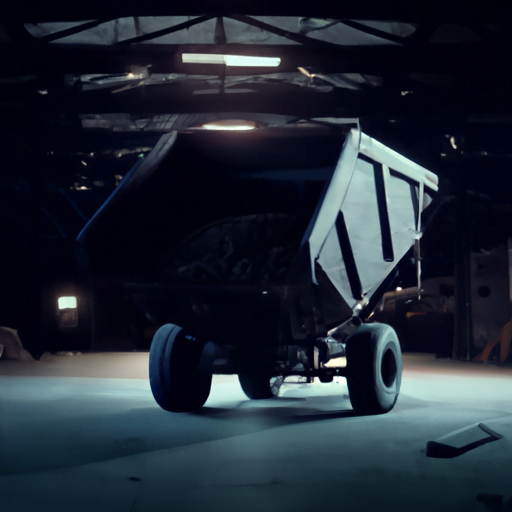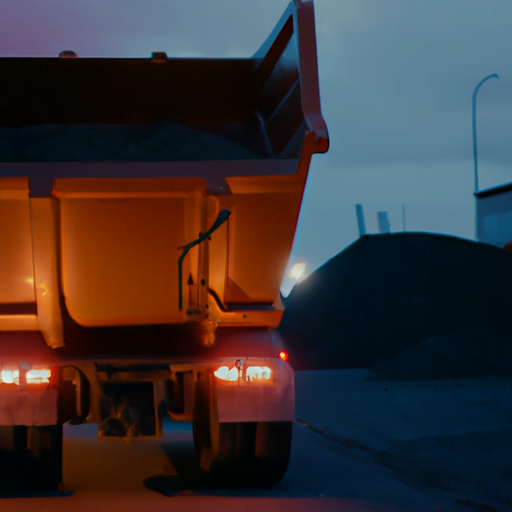-
Table of Contents
The Ultimate Buying Guide for Dump Trailers

Whether you’re a contractor, landscaper, or just a DIY enthusiast, a dump trailer can be an invaluable tool for hauling and disposing of materials. But with so many options on the market, how do you choose the right one for your needs? In this ultimate buying guide, we’ll walk you through the key factors to consider when purchasing a dump trailer, as well as some top tips for getting the most out of your investment. So, let’s dive in!
1. Determine Your Needs
Before you start shopping for a dump trailer, it’s essential to determine your specific needs. Consider the following questions:
- What types of materials will you be hauling? (e.g., dirt, gravel, debris, etc.)
- How much weight do you need to carry?
- How often will you be using the trailer?
- What is your budget?
By answering these questions, you’ll have a better idea of the size, capacity, and features you need in a dump trailer.
2. Choose the Right Size and Capacity
Dump trailers come in various sizes and capacities, so it’s crucial to select one that can handle your specific needs. Here are some common sizes and their typical weight capacities:
- 5′ x 8′: 2,000 – 3,000 lbs
- 6′ x 10′: 3,000 – 5,000 lbs
- 6′ x 12′: 5,000 – 7,000 lbs
- 7′ x 14′: 7,000 – 10,000 lbs
- 7′ x 16′: 10,000 – 14,000 lbs
Keep in mind that these are just general guidelines, and actual capacities may vary depending on the specific trailer model. Always consult the manufacturer’s specifications to ensure the trailer can handle your intended load.
3. Consider the Trailer’s Construction
The durability and longevity of your dump trailer will largely depend on its construction. Here are some key factors to consider:
- Frame: Look for a trailer with a sturdy, heavy-duty frame made from high-quality steel. This will provide the necessary support for heavy loads and resist bending or warping over time.
- Flooring: The trailer’s floor should be made from a durable material, such as steel or treated wood, to withstand the weight and abrasion of the materials you’ll be hauling.
- Walls: The walls of the trailer should be made from a strong, corrosion-resistant material like steel or aluminum. Some trailers also feature removable side panels, which can be useful for loading and unloading materials.
- Axles: The axles should be rated for the trailer’s maximum weight capacity and feature high-quality bearings and suspension components for a smooth, stable ride.
4. Look for Convenient Features
While the size, capacity, and construction of your dump trailer are essential, don’t overlook the importance of convenient features that can make your life easier. Some features to consider include:
- Hydraulic Lift System: A hydraulic lift system allows you to easily raise and lower the trailer bed, making it much easier to load and unload materials. Look for a trailer with a powerful, reliable hydraulic system that can handle the weight of your loads.
- Remote Control: Some dump trailers come with a remote control for the hydraulic lift system, allowing you to operate the trailer from a distance. This can be a significant safety feature, especially when working with heavy or unstable loads.
- Tarp System: A tarp system can help protect your load from the elements and prevent debris from flying out of the trailer while in transit. Look for a trailer with an easy-to-use tarp system that securely covers your load.
- Storage: Some dump trailers feature built-in storage compartments for tools, straps, and other accessories. This can help keep your work area organized and make it easier to find what you need when you need it.
5. Research the Manufacturer and Warranty
Finally, it’s essential to research the manufacturer of the dump trailer you’re considering. Look for a reputable company with a history of producing high-quality, durable trailers. Additionally, check the warranty offered on the trailer. A good warranty can provide peace of mind and protect your investment in the long run.
Conclusion
Choosing the right dump trailer for your needs can be a daunting task, but by considering your specific needs, the size and capacity of the trailer, its construction, convenient features, and the manufacturer’s reputation, you can make an informed decision. Remember to always consult the manufacturer’s specifications and warranty information before making a purchase. With the right dump trailer in your arsenal, you’ll be well-equipped to tackle any hauling job that comes your way.

